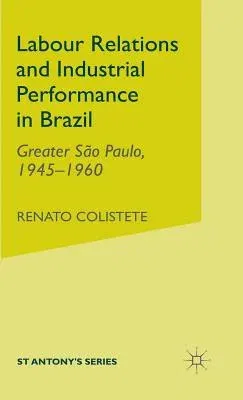R Colistete
(Author)Labour Relations and Industrial Performance in Brazil: Greater Sao Paulo, 1945-1960 (2001)Hardcover - 2001, 5 June 2001

Qty
1
Turbo
Ships in 2 - 3 days
In Stock
Free Delivery
Cash on Delivery
15 Days
Free Returns
Secure Checkout

Part of Series
St Antony's
Part of Series
St. Antony's
Part of Series
St. Antony's Series
Part of Series
St. Antony's St. Antony's
Print Length
225 pages
Language
English
Publisher
Palgrave MacMillan
Date Published
5 Jun 2001
ISBN-10
0333949242
ISBN-13
9780333949245
Description
Product Details
Author:
Book Edition:
2001
Book Format:
Hardcover
Country of Origin:
US
Date Published:
5 June 2001
Dimensions:
22.3 x
14.63 x
2.24 cm
ISBN-10:
0333949242
ISBN-13:
9780333949245
Language:
English
Location:
London
Pages:
225
Publisher:
Weight:
503.49 gm